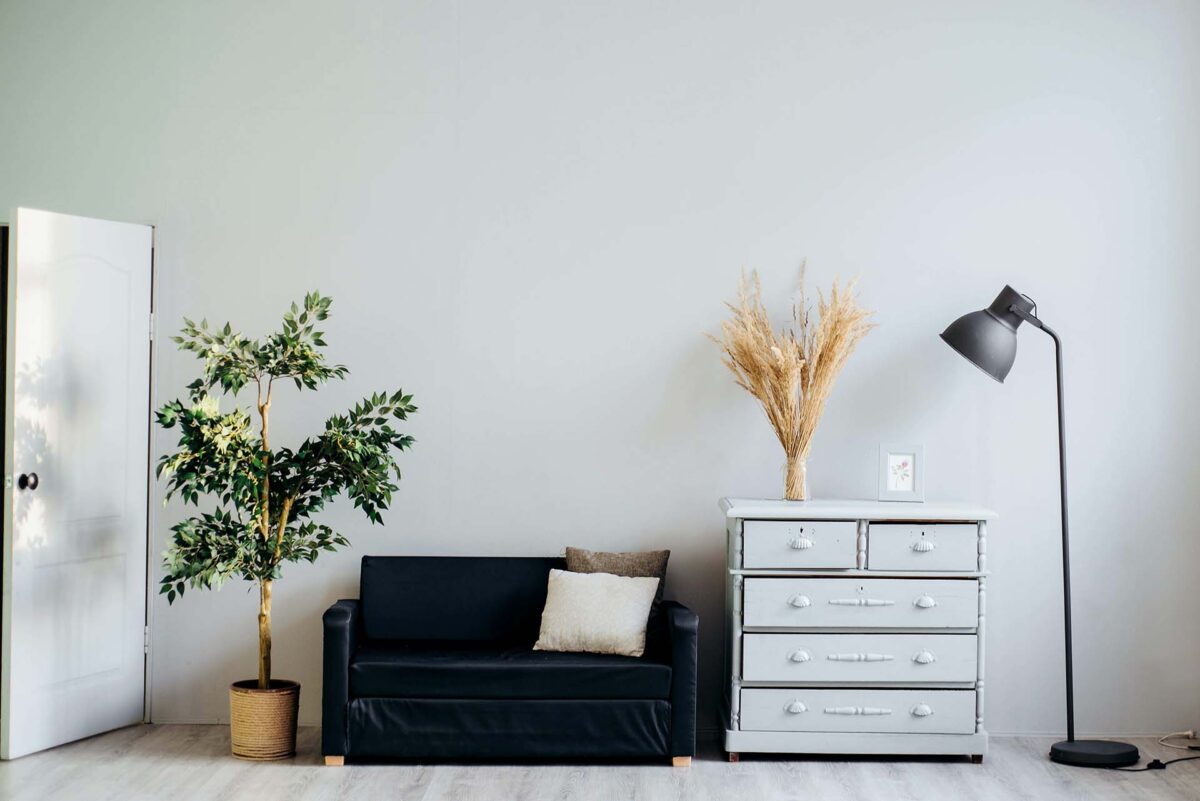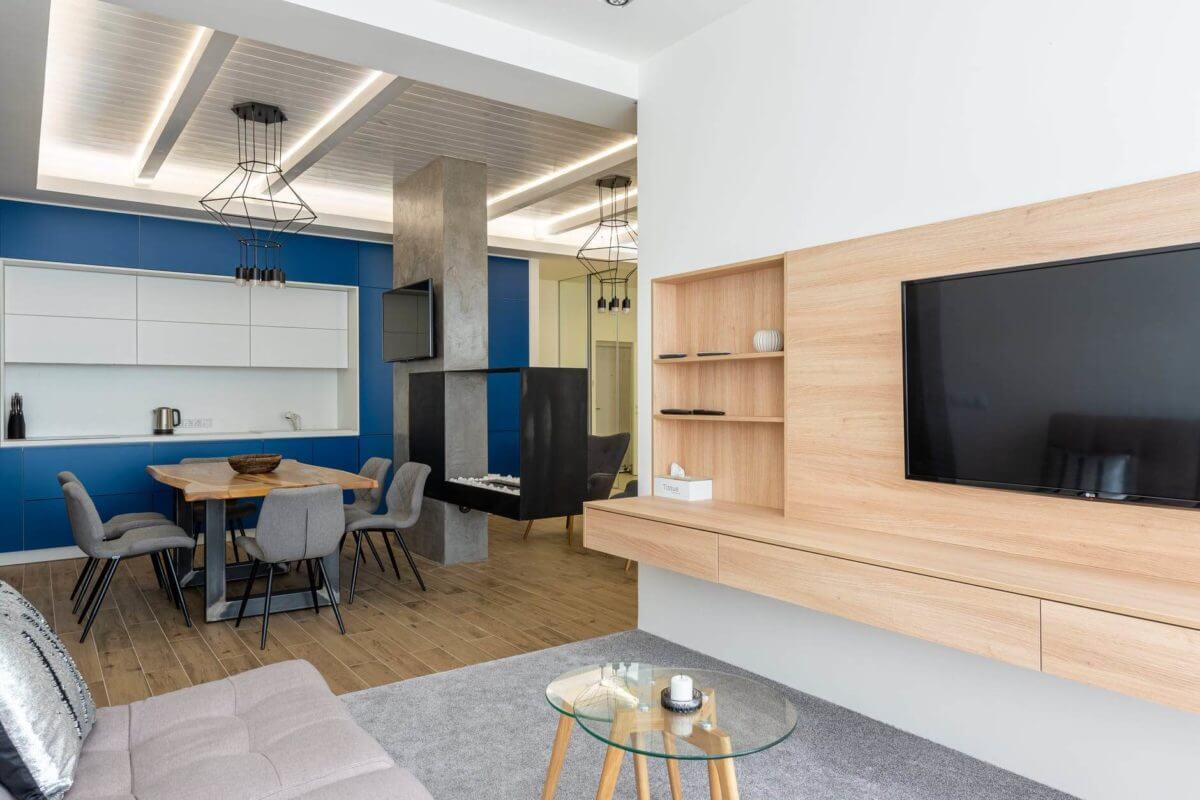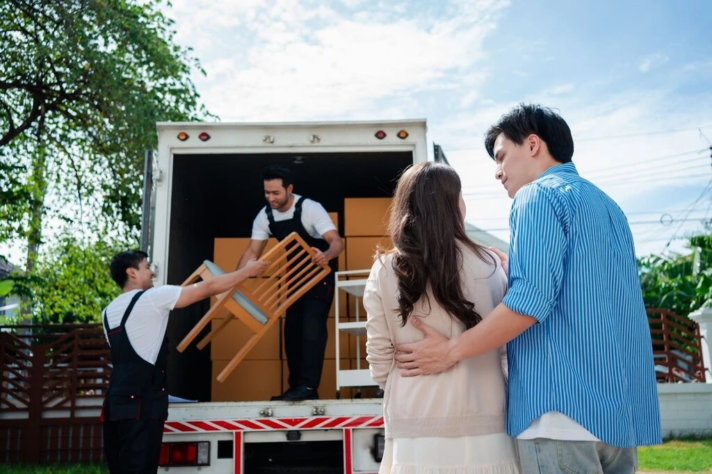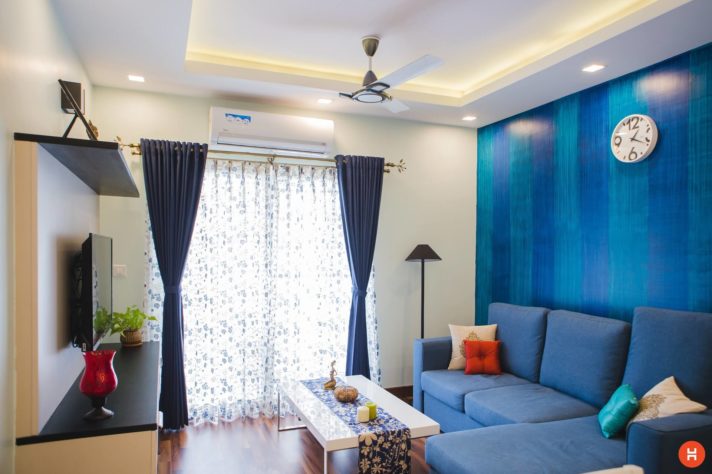Most people dream of living in a house with a beautiful backyard but may be surprised by its costs. From the obvious higher cost of utilities to perhaps a longer commute time to their work, it all simply adds up. Those who wish to make some improvements should be aware that the average bathroom remodel costs around $10,500, and sprucing up the kitchen will cost nearly $4,400. With that being said, if you plan to move to a big city, hiring a cross-country moving company, leaving the big abode behind, and transitioning to a smaller residence seems only natural.
Things to Know When Moving from House to Apartment
There are a lot of reasons behind moving from house to apartment. Perhaps you’ve started feeling that your residence is too spacious to no avail and that the expenses in a house are way above your budget. That’s why you’ve decided to move to a tinier space, but it will take some planning to make this transition smooth.


Moving From House to Apartment Will Drive You to Focus On What You Really Need
The fact that you’re considering the question “Should I move from a house to an apartment?” tells that you are already aware of some of the advantages of smaller cribs. Since the trends lately show that an average homeowner spends about eight years in one house, according to I Property Management, that period is more than enough for us to hoard necessary stuff. Still, we also tend to pile up excessive possessions. Moving to a smaller home such as an apartment will drive us to rethink the purpose of many items we find in our home and figure out how to tailor our lifestyle accordingly.
Consider Whether Buying or Renting Fits Your Vision
Your reasons to move may be that you’re leaving the safety of your parents’ home and downsizing from a house to an apartment to head out to college. The college packing list should be filled with essentials and a list of what you need to rent an apartment because renting will be a wise choice. But families who want to leave their houses behind and settle in an apartment in the new state may choose between renting and buying. Perhaps signing a lease at first would be good, so you can give yourself time to figure out how long you would like to stay in that place. You can hear about some apartment renting experiences in the video below.
Start Making a List of Wishes and Needs, and Consider Your Budget
The first thing you’ll have to do is decide where to live and which area is best for your needs. Write down what you’re looking for, such as a short commute to your workplace and proximity to good schools. A plethora of restaurants and bars in the area may also be decisive for some people, while others would like some peace and good walkability in the neighborhood. Once you’ve picked a district that fits your needs, set your budget. It should include how much you are willing to pay for rent, as well as projected monthly utilities and the cost of groceries.
Research the Marketplace to Find What Fits Your Lifestyle
Before you contact long-distance movers, several more things are to be tackled while organizing your move, and taking a look at the property marketplace is one of them. Researching the market to find precisely what you are looking for has never been easier because now you can do it from the comfort of your home. Virtual tours have made online viewing of apartments possible, although we suggest visiting the place once you’ve narrowed down your choices.
Write Down the Questions to Ask the Landlord
Before you head out to visit the apartments you have set your eyes on, you should compose a list of questions to ask the landlord or the property manager. Here are the most important questions listed:
- The lease term length. Although a lease is commonly 12 months long, some management companies and landlords may offer terms for six months or up to 18 months.
- What’s included in the rent. Some landlords calculate utilities into monthly rent, and it’s crucial to find out before you move in what are your responsibilities, as far as the utilities go. Ask which providers they have a contract with, so you can know what it takes to transfer utilities from your previous place.
- The ways you can pay your rent, and when it is due. It’s good to know the specific payment process before renting and what late fees you’d have to pay if you miss the rental date.
- The security deposit. Ask how much should you set aside for the deposit, is it refundable, and under what circumstances.
- For anyone that plans on moving with pets, a crucial question is whether pets are allowed and if they are, are you expected to pay a monthly fee.
- Before you invest in an auto shipping service to transport your car, find out if the complex you plan on moving into has an available parking space, and if not, how hard it is to park in the nearby streets.
- The guest policy. Property management and landlords may have various rules concerning overnight guests and visitors, so make sure you find out how to follow the guidelines.
You can add some more questions, like the penalties for breaking the lease term, or are you able to sublet the property. Perhaps the complex management has some maintenance or constructions planned in the near future, so add that to the list of questions, too.


Less Chaos in Your Home Is a Perfectly Good Reason to Downsize
Most of us like to have a tidy, neat, and well-thought-out space, and all of you who live in spacious homes know how hard it is to keep it clean and uncluttered and how much time it requires sprucing it all up. A smaller space is easier to maintain, but before you call your cross-country movers and ask for their packing services, you’ll have to decide what you’ll leave behind.
Decluttering Will Help You Start to Downsize
If you wonder how to downsize from house to apartment, the best way to start is by purging your residence and getting rid of the things you don’t need. Decluttering is also one of the essential steps when you’re preparing your home for sale. After you decide what to get rid of, you should split your discarded belongings into three piles. The first is “to the trash with it,” then usable stuff that can make someone else happy is the “donate unwanted items” pile, and the third is the “I could sell this” pile. Once you’ve thrown everything damaged into a garbage bin, find out where to donate furniture, as well as other things, and throw a garage sale.


Take More Time to Figure Out Arrangements and Save on Space
A huge residence is more easily arranged, and we’re free to decorate it to our liking since we own it. But although a rented apartment shouldn’t be redecorated, you can take your time and figure out its layout to use each room to the fullest. But you’re probably wondering how do I move my house into an apartment? You probably realize by now that even after decluttering, it will be hard to fit all your things into a tinier abode.
Invest in Self-Storage Units
Storage service may come in handy for any item you’re not sure what to do with, huge furniture pieces. Before you store it in a unit, you should thoroughly protect items, just as you pack furniture for a long-distance moving company to transport. Use different types of packing materials, ranging from best-sized boxes to specialized furniture blankets, as well as bubble wrap, and make sure every piece is clean and dry. This way, your possessions will be safe and secure for a more extended period of time.
Think of the Smart Storage Solutions for Your Items
Decide whether you’re moving furniture that’s left after decluttering into the new residence with you by figuring out it will fit either by style or by its size. If you’ve realized that it won’t fit and you should buy some other pieces, make sure you invest in innovative storage solutions. There are many tables, sofas, and other pieces which have hidden compartments and use lots of shelving solutions wherever you see a free wall.


Tighter Space Saves You Money
If you add anything you’ve managed to save up when you’ve organized a sale, in the beginning, you’ll have more in your budget to work with. While getting rid of stuff will reduce costs when moving in a significant way, you should also keep in mind your monthly expenses. It will probably be much lower than your monthly fees in a house were. Calculate how much you’ll need for the deposit, your rental, utilities, and the cost of groceries and other things in the area you’re moving to. If you are asking yourself, “is living in an apartment better than a house?” you’ll see that saving up is the biggest pro of such a transition.
Although Your Rent May Be Bigger Each Year
Since you are already paying mortgage payments each month along with some other fees, you are aware that these monthly costs are pretty consistent, with no surprises. But what you should be aware of and know in advance is that renting an apartment in a complex will not always cost you the same. Property managements usually raise the rent for their tenants after the lease term has ended. It’s good to know this fact, so it doesn’t come as a surprise with your lease renewal.
But There Are Still Other Perks to Moving From a House to an Apartment
First of all, after you’ve done all the preparatory steps so you can move efficiently and settle into your abode, you’ll have different amenities at your disposal. They can make your life full of activities if you choose to take every possible advantage of them. Second, although you won’t have your own yard anymore, the greenery around your residence will be someone else’s responsibility. Third, making friends will also be easy, since your neighbors live just down the hall from you, which will also help you feel more secure.


Take Every Possible Advantage of Apartment Life
In the end, you must be wondering, “How do I adjust to apartment living?” As with any other change in life, look only for the positive effect this change of scenery has on you and your family. If you were careful with choosing an area, you would probably have a more convenient neighborhood for your needs, so a smaller space won’t make you feel depressed or cramped. Arm yourself in a good mood, look for packing tips & tricks to pack your household in an instant, and invest in reliable long-distance moving services to help you take a leap of faith.






